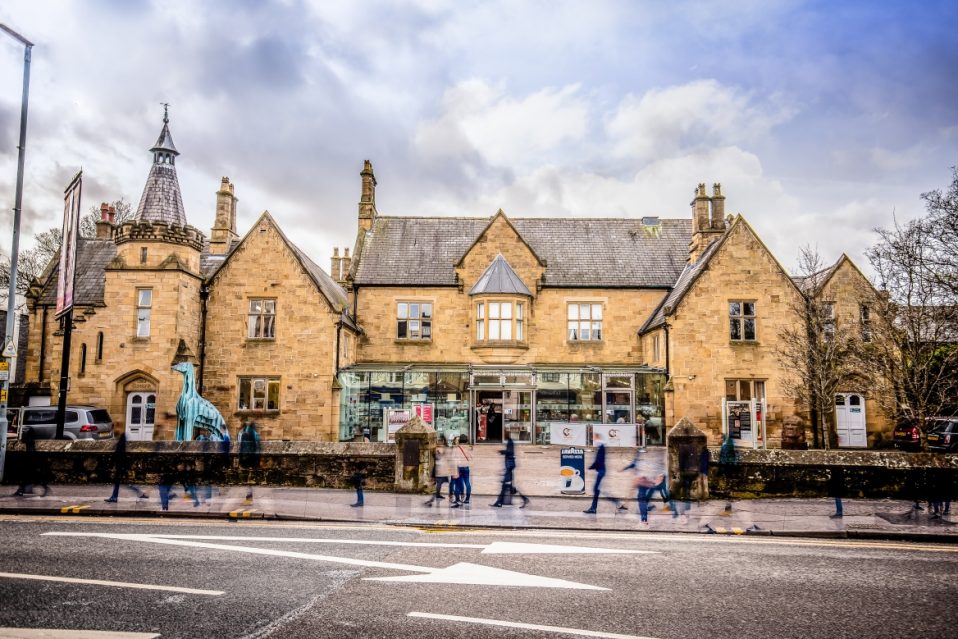Last month we launched a Wales-wide public survey to help us design a brand new attraction coming to Wrexham town centre.
Wrexham Council, in partnership with the Welsh Government, are undertaking a major redevelopment of the Wrexham Museum building to create a joint Football Museum for Wales and Wrexham Museum located on one site.
The new Football Museum will aim to tell the story of football in Wales, from the clubs, communities and supporters across the country, all the way up to the national teams and their historic achievements.
Wrexham Museum will be refurbished as part of the project and will feature brand new galleries exploring the history of Wrexham.
The questions in the survey were designed to help us learn more about who visits the museum, who doesn’t, and why.
The survey also asked people what they thought the Museum does well, what could be improved and what they would like to see included in the new Football Museum and revamped Wrexham Museum.
What you told us
Here are some of the key findings from the survey:
- 529 responses were received in total
- 51% of respondents had visited Wrexham Museum previously
- Those responding to the questionnaire came from across Wales as well as some from England.
- 75% of respondents considered themselves to be Welsh.
- 67% of respondents were male, and 33% were female.
- Majority of respondents were aged between 35-64. Only 5% were under 24.
The survey also found that….
- 80% of all respondents were interested in an expansion of the core local history offer of Wrexham museum.
- In addition to this, 84% of people were interested in the new Football Museum for Wales.
- Football memorabilia is frequently listed as visitors’ favourite exhibits, alongside industrial history of the area and specific objects such as the Mold Cape and Brymbo man.
- When asked what could be improved, visitors suggested more rotating and visiting exhibitions, increased advertising as well as a larger and brighter museum space.
- When asked what would encourage people to visit the most common responses were interactive and engaging exhibitions, and activities and events with the football collection.
- Very few people were interested in a development of retail or education sessions, but 50% of people suggested that better publicity about the museum and events would make them more likely to visit the museum.
Read on for a more in depth look at the results….
Current Museum visitors
The survey found that visitors are most likely to have come to Wrexham museum from Wales, in particular from the area surrounding the museum and the Llandudno postcode.
Visitors are most likely to have last come recently (within the last year or immediately before the pandemic)
Most people have heard about the museum because they live locally or from word of mouth and recommendations from others.
People who have previously visited have come due to an interest in Wrexham’s heritage or a specific event or object. They are less likely to have come to entertain themselves or their children.
People enjoy the collection and the facilities – in particular the café – are especially popular. Temporary exhibitions also receive praise and have encouraged people to visit multiple times.
Football memorabilia is frequently listed as visitor’s favourite exhibits, alongside industrial history of the area and specific objects such as the Mold Cape and Brymbo man.
When asked what could be improved, visitors suggested more rotating and visiting exhibitions, increased advertising as well as a larger and brighter museum space.
Most people enjoyed their visit, rating it either excellent or just below excellent.
Non Museum visitors
47% of those who had not visited the museum before had heard about Wrexham Museum.
Non-Visitors were also asked to indicate the reason why they had never visited Wrexham Museum. The most popular reason for not visiting was never having heard of the museum before. Additionally, non visitors frequently stated that they had either it had never occurred to them to visit, or that they felt that the museum was too far away or difficult to get to.
The future
80% of all respondents were interested in an expansion of the core local history offer of Wrexham museum.
In addition to this, 84% of people were interested in the new Football Museum for Wales.
When asked what would encourage people to visit the most common responses were interactive and engaging exhibitions, and activities and events with the football collection.
Very few people were interested in a development of retail or education sessions, but 50% of people suggested that better publicity about the museum and events would make them more likely to visit the museum.
Overall the idea of an increase of events (both related to football and to Wrexham’s heritage) was received positively with some write-in answers suggesting activities ranging from art exhibitions to comedy events and guest speakers.
Location accessibility featured heavily in answers, with comments on how improved transport links to the museum and an increase of things to do in the area, suggested to encourage future visits.
Cllr Hugh Jones said: “Many thanks to everyone who responded to the survey from Wrexham and all over Wales. As results show, the interest in the new Football Museum continues to grow all over the country and the broad range of responses has given us an excellent platform to start developing ideas with the design team.
We hope this exciting new attraction will draw many new visitors to Wrexham town centre in the future, supporting our local economy and shining a spotlight on our local culture and heritage alongside the story of football in Wales.”
What happens next
The results of the survey are now being discussed with the design team and will help inform the early proposals for the new Football Museum and revamped Wrexham Museum.

